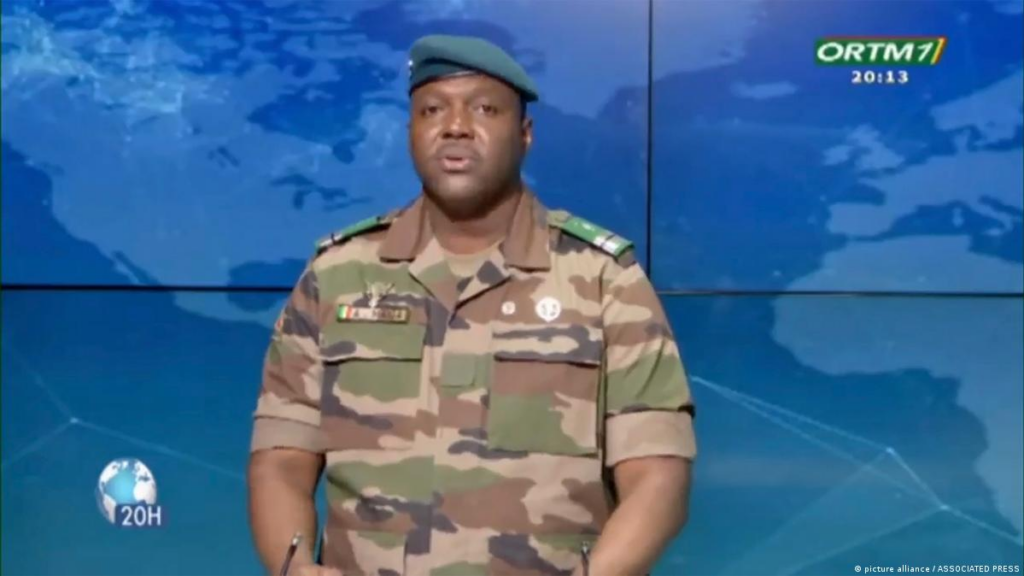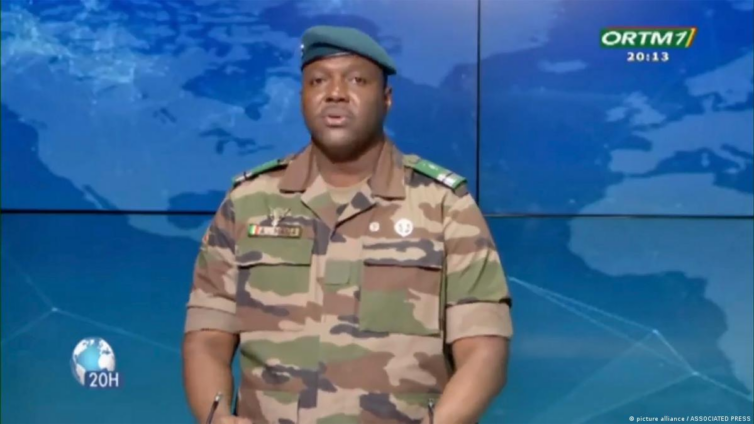The 2015 Algiers Accord brought stability to the north of the country as jihadist violence was on the rise. The military took control of Mali following two coups in 2020 and 2021.
The military rulers of Mali have ended a major peace deal with Tuareg separatist rebels in the north of the country, government spokesperson Colonel Abdoulaye Maiga said in a televised statement on Thursday.
Maiga said the government "notes the complete impossibility of the deal… and in consequence announces its end, with immediate effect."
Rebels, grouped under the Coordination of Azawad Movements (CMA), had already accused the government in Bamako of "abandonment" of the peace deal in July 2022.
What was the peace deal?
The Algiers Accord was signed in 2015 with support from the UN. It had been considered an essential agreement to maintaining stability in the region that has seen a flare-up of jihadist violence since 2012.
The agreement aimed to see ex-rebels integrated into the national army and allowed for more autonomy for the various regions.
Mali's junta blamed a "change in posture of certain signatory groups" as well as "acts of hostility" from Algeria, the peace deal's main mediator.

Tensions have been increasing between Mali and Algeria, with the former accusing the latter of "interference" and "unfriendly acts."
Mali's government summoned the Algerian ambassador in December last year, saying that the diplomat had held meetings with the Tuareg separatists.
Violence and instability in Mali
There were already signs of the deal coming apart when fighting broke out between Mali's military and the separatists in August last year.
The West African country has undergone two coups since 2020, leading to military rule and a fallout with Western powers that had been present in Mali as part of a counterinsurgency operation.
The junta ordered UN peacekeeping troops to leave the country, as well as French troops who had been fighting insurgents in the north of Mali.
Their departure has been seen as an instigator for the upsurge in violence as both the government and separatist groups raced to fill up the vacuum.
Latest Stories
-
Ghana shouldn’t have experienced any ‘dumsor’ after 2017 – IES Boss
41 mins -
Lamens flouted some food safety laws in re-bagging rice – Former FDA Boss Alhaji Hudu Mogtari
1 hour -
Afcon exit: Our issue is administrative failure and mismanagement, not lack of talent – Saddick Adams
2 hours -
WAPCo to commence major pipeline maintenance and inspection from November 25
2 hours -
CEO of Oro Oil Ghana Limited Maxwell Commey listed among the 100 Most Influential People Awards, 2024
2 hours -
Power crisis: Amandi is off due to maintenance, not debt – ECG Boss
2 hours -
Votes cast for late Akua Donkor to be declared invalid – Electoral Commission
2 hours -
You can’t keep “incompetent” Otto Addo for the long term – Countryman Songo
3 hours -
Joy FM holds 2024 Prayer Summit for Peace
3 hours -
Lady sues Police and AG over assault in custody
4 hours -
Ghana’s railway sector has been revived under my leadership – Akufo-Addo
4 hours -
Next government must enforce C190 – Women Economic Dialogue Forum
4 hours -
NCCE engages party youth activists at Nandom on peaceful election
4 hours -
SSNIT engages stakeholders on its operations
4 hours -
Defilement: 19-year-old farmer jailed ten years, with hard labour
4 hours

